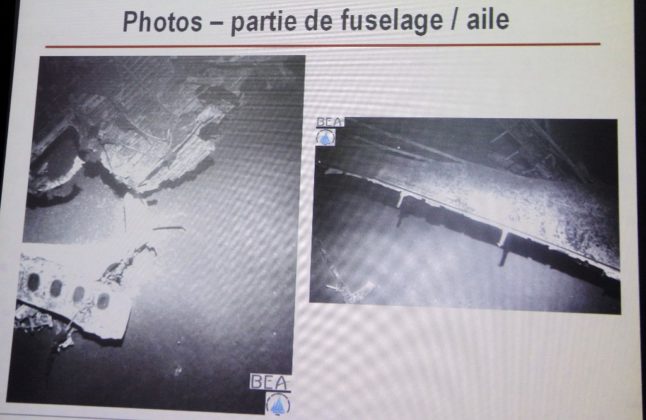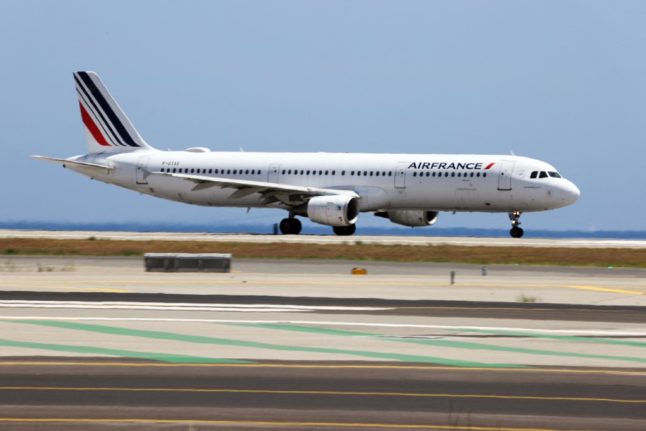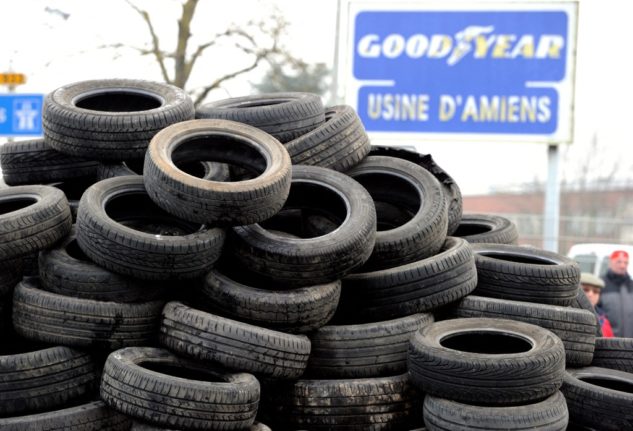The case focuses on alleged insufficient pilot training and a defective speed monitoring probe, which was quickly replaced on planes worldwide in the months after the accident.
Flight AF 447 from Rio de Janeiro to Paris plunged into the Atlantic Ocean during a storm in the early hours of June 1, 2009, when it stalled after entering a zone of strong turbulence.
The Airbus A330 was carrying 12 crew members and 216 passengers, including 61 French. It was the carrier’s deadliest crash.
Debris was found in the following days but it took nearly two years to locate the bulk of the fuselage and recover the “black box” flight recorders.
Air France and Airbus were charged as the inquiry progressed, with experts determining the crash resulted from mistakes made by pilots disorientated by so-called Pitot speed-monitoring tubes that had frozen over in thick cloud.
Both companies have denied any criminal negligence, and investigating magistrates overseeing the case dropped the charges in 2019, attributing the crash mainly to pilot error. That decision infuriated victims’ families, and in 2021 a Paris appeals court ruled there was sufficient evidence to allow a trial to go ahead.
“Air France… will continue to demonstrate that it did not commit any criminal negligence that caused this accident, and will request an acquittal,” the airline said in a statement.
Airbus, maker of the A330 jet that had been put into service just four years before the accident, declined to comment ahead of the trial but has also denied any criminal negligence.
They each face a maximum fine of 225,000 euros ($220,000).
‘Lost our speeds’
The court will hear testimony from dozens of aviation experts and pilots, along with second-by-second details of the final minutes in the cockpit before the plane went into free-fall.
As it approached the Equator en route for Paris, the plane entered a so-called “intertropical convergence zone” that often produces volatile storms with heavy precipitation.
Around this time the captain, 58, handed over to his 32-year-old senior co-pilot and went to bed, with the second co-pilot sharing the controls.
READ ALSO: Air France suspends two pilots who came to blows in mid-air
To avoid the worst of the storm they veered off route to the left and slowed their speed, having warned the crew of coming turbulence.
Shortly after the automatic pilot functions stopped working, just as the Pitot tubes froze over, leaving the pilots with no clear speed readings.
“We’ve lost our speeds,” one co-pilot is heard saying in the flight recordings, before other indicators mistakenly show a loss of altitude, and a series of alarm messages appear on the cockpit screens.
The pilots quickly point the nose of the plane higher to start climbing, but soon a “STALL” alert sounds once, then pauses, then sounds nonstop for 54 seconds.
The plane keeps climbing, engines at the max, and reaches 11,600 metres (38,060 feet) before the stall begins. “I don’t know what’s happening,” one of the pilots says. At this point the captain is back in the cockpit trying to help but the plane is falling rapidly, at 3,000 metres per minute.
“Am I descending?” the senior co-pilot asks. “No, now you’re climbing,” the captain answers. The recordings then stop, four minutes and 30 seconds after the Pitot tubes froze.
‘The human element’
Testimony will also be heard from some of the victims’ family members, 476 of whom are civil plaintiffs in the case.
“It’s going to be a very technical trial… but our goal is also to re-introduce the human element,” said Alain Jakubowicz, a lawyer for the victims’ group Entraide et Solidarite (Mutual Aid and Solidarity).
Its president, Daniele Lamy, said that instead of trying to pin the blame on the pilots, “We want this trial to be that of Airbus and Air France.”
“We expect an impartial and exemplary trial so that this never happens again, and that as a result the two defendants will make safety their priority instead of only profitability,” she said.
But Nelson Faria Marinho, president of the Brazilian association of victims’ relatives, said, “I’m not expecting anything from this trial.” His 40-year-old son, also named Nelson, perished on his way to an oil industry job in Angola.
“Even if there is a conviction, who will be punished? The CEOs? They were changed at Airbus and Air France a long time ago,” he told AFP during an interview at his Rio home.
Despite having travelled to France 18 times to meet authorities and investigators, Faria Marinho will not be at the trial. He will be represented by former French pilot Gerard Arnoux, who has advised several of the victims’ families and wrote a book titled “Rio-Paris Is Not Responding: AF447, the Crash that Should Not Have Happened”.
“The French government isn’t going to pay for the trip, and the tickets are much too expensive. I’m retired and don’t have the resources,” he said. “But if I could, I would.”



 Please whitelist us to continue reading.
Please whitelist us to continue reading.
Member comments